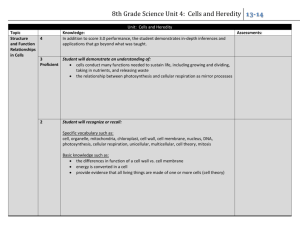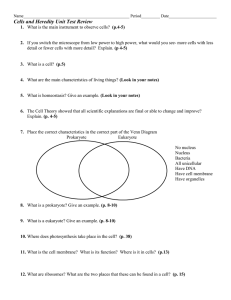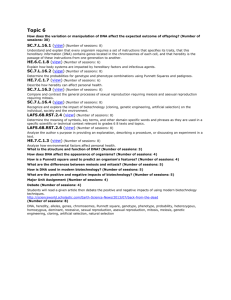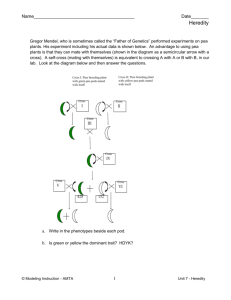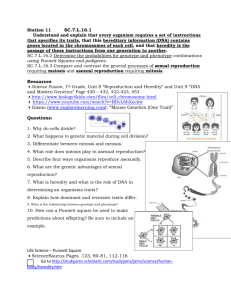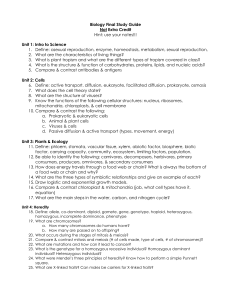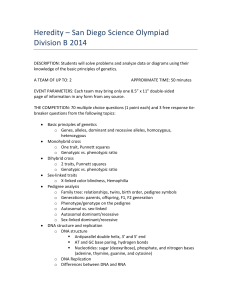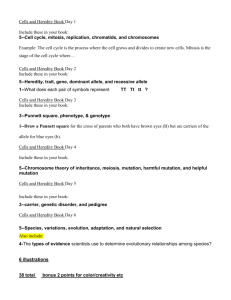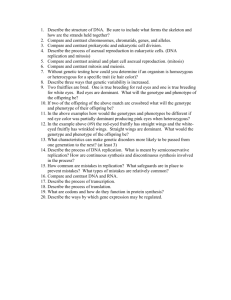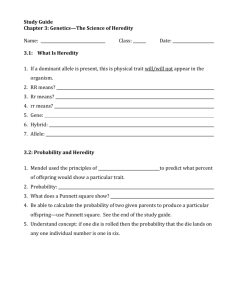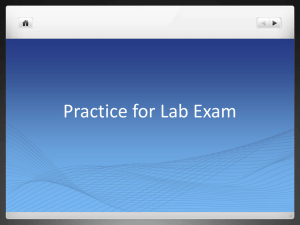8th Grade Science Unit 4: Cells and Heredity
advertisement
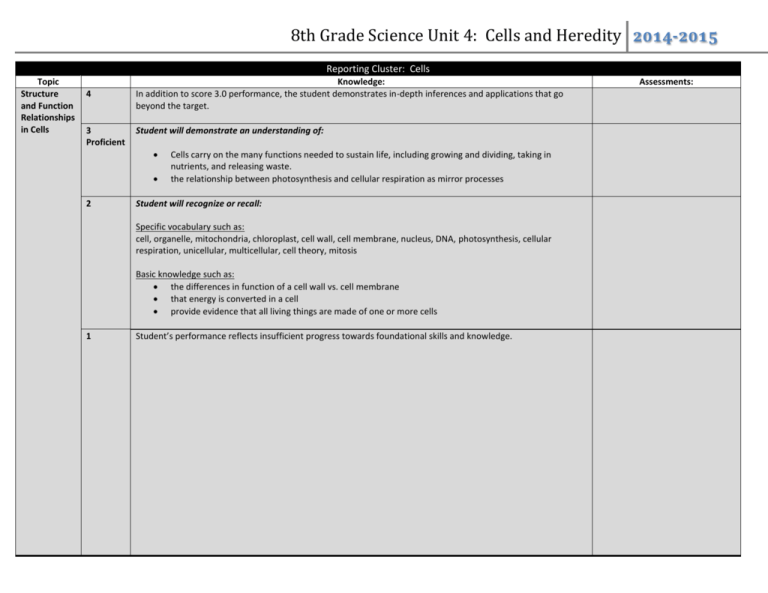
8th Grade Science Unit 4: Cells and Heredity 2014-2015 Reporting Cluster: Cells Topic Structure and Function Relationships in Cells 4 3 Proficient Knowledge: In addition to score 3.0 performance, the student demonstrates in-depth inferences and applications that go beyond the target. Student will demonstrate an understanding of: 2 Cells carry on the many functions needed to sustain life, including growing and dividing, taking in nutrients, and releasing waste. the relationship between photosynthesis and cellular respiration as mirror processes Student will recognize or recall: Specific vocabulary such as: cell, organelle, mitochondria, chloroplast, cell wall, cell membrane, nucleus, DNA, photosynthesis, cellular respiration, unicellular, multicellular, cell theory, mitosis Basic knowledge such as: the differences in function of a cell wall vs. cell membrane that energy is converted in a cell provide evidence that all living things are made of one or more cells 1 Student’s performance reflects insufficient progress towards foundational skills and knowledge. Assessments: 8th Grade Science Unit 4: Cells and Heredity 2014-2015 Reporting Cluster: Heredity Topic Reproduction and Genetic Variation 4 3 Proficient Knowledge: In addition to score 3.0 performance, the student demonstrates in-depth inferences and applications that go beyond the target. Student will demonstrate an understanding of: 2 how to use a Punnett square to predict the possible phenotype of the offspring traits as a result of inheritance or interactions with the environment how differences in DNA replication can cause mutation and changes in genotype which can be harmful, beneficial or neutral Organisms reproduce, either sexually or asexually, and transfer their genetic information to their offspring. Student will recognize or recall: Specific vocabulary such as: meiosis, Punnett square, genetic, mutation, gene, DNA, allele, genotype, phenotype, chromosomes, dominant, recessive, homozygous, heterozygous, heredity, trait, inherit, sexual, asexual Basic knowledge such as: how to complete a Punnett square using dominant and recessive alleles the relationship between genotype and phenotype the role of dominant and recessive alleles in determining an offspring’s traits comparing the products of mitosis and meiosis DNA replicates, and can sometimes have variations 1 Student’s performance reflects insufficient progress towards foundational skills and knowledge. Assessments: 8th Grade Science Unit 4: Cells and Heredity 2014-2015 Suggested Instructional Resources Sample Learner Objectives Topic Structure and Function Relationships in Cells I can identify the components of the Cell Theory. I can describe the basic structures and functions of the cell. I can compare and contrast the reactants and products of cellular respiration and photosynthesis I can compare/contrast the products of mitosis and meiosis I can explain the role of DNA in heredity I can apply the concept of natural selection in relationship to a species over many generations I can construct and complete a Punnett Square, and use the results to determine the offspring’s genotypes and phenotypes Reproduction and Genetic Variation Textbook Resources Labs PBL Ideas (projects) Web Resources – websites or resources on http://science.dmschools.org
